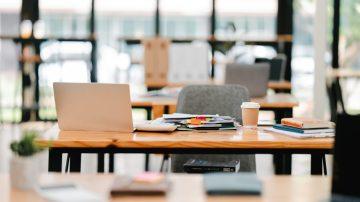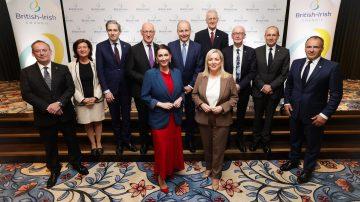In the third and final instalment of our interview with Guernsey Chief Minister Deputy Gavin St Pier, he tells Channel Eye how the exit from lockdown will be harder than staying home and how he’s learned that Guernsey Together is more than just a hashtag
With honesty that’s refreshing for a politician, Deputy St Pier has made no bones about the fact that our exit from lockdown will be much harder than it was to tell us all to stay home. There are more variables involved and there’s the risk that we may end up going backwards if Covid-19 cases re-emerge and take hold. There’s also the competing demands of those who want to open the borders now, those who feel that every day the borders are closed will further harm the economy, and those who believe we need to wait til there’s a vaccine or it’s eradicated from the face of the earth before it’s even considered. How does he plan to take us through it?
“It’s very hard. Back in the 9th/10th March we had no idea how long this was to last, whether it was only a few weeks. If you remember the initial shutdown was only for 14 days. But as things evolved quite quickly and as we saw how this was playing out in other countries, it became obvious that this was a much longer haul. And of course with the benefit of hindsight it’s clear what a strong position we have been in to come out of the main part of the lockdown so quickly. While there was never the intention to bring us back to a virtual state of normality so far ahead of other jurisdictions, the fact that we are in that position and enjoying that position is of massive significance to the community and the economy.
“The fact that everybody has the confidence to go anywhere and do anything, which is not the case elsewhere, people do not have to wear facemasks and all of those things, that is immensely valuable. It’s not about just keeping covid-free because that was never one of the overt objectives. We were looking to contain, as was everywhere else, we were looking to manage the situation rather than eliminate. But I think what covid-free has given us is a level of confidence and wellbeing in the community which is almost as valuable as being covid-free itself.
Making the right judgement
“So I think that has to be taken into account and any decisions we make, we have to judge the impact of the loss of that confidence amongst the community. And that in a sense is why we are in a different position to other jurisdictions. Because other jurisdictions are not making the same decisions from the same point of advantage that we are. Which in a way makes it arguably harder for us to make the right judgements at the right time. In a way it’s a nice problem to have but it’s a real challenge.
“I think the business community has learned to manage remotely and I have no doubt that actually they will continue to be able to do so for some time to come. But we have to acknowledge that as a community there are very real pressures on the mental health and wellbeing of many people in the community as a result of enforced separation from loved ones.”
He says it’s hearing those real-life stories from people who’ve endured being separated from the people they love for months on end that keep him awake at night.
“I have had many emails from individuals who have not seen their partner or have not seen their children for months. That is heartbreaking. That in a way is a greater pressure than the economic pressure because economic pressure is probably to maintain confidence locally. That’s probably in our longer-term interests. For me it’s about how do we reasonably and safely allow our families to reconnect, which is so important to their health and wellbeing. That is the bigger challenge than the business community.
“There are plenty of people who have said that they haven’t seen their partner since February and it’s difficult for many of us to imagine being in that position. So we have to acknowledge that and we have a responsibility to find a way that allows that reconnection providing of course that we can do it safely and that’s really what the challenge is all about and where all the planning is now going.”
Guernsey Together
What has he learned from this?
“It’s a very good question. It’s a response I’ve given before [in previous interviews] so I’m going to use it again. It may sound trite almost but what I’ve learned is the level of interconnection we have as a community. People have been immensely kind and generous about my role and those of us who have been publicly the face of the covid response. But the reality is that none of us could have done it without everybody else. And we don’t just mean the community’s response in terms of following the rules and regulations, but in terms of the recognition that everybody has a role to play. And that’s what I was trying to highlight when for an extended period I did a daily shoutout. That was to try and make the point that it doesn’t matter where people sit or what role people have, there are other people who are reliant on that.
“The role of the front line carers, they couldn’t do what they do without the PPE being ordered. The person that did that worked ridiculous hours to try and source it from all around the world and negotiate the best prices. None of us could do our jobs without there being food on the shelves to keep us all alive and the teams that empty our waste and process it stood in full PPE at four o clock in the morning in the waste transfer station. The list goes on, and that’s what those videos were about. They were saying whether you’re a dairy farmer or the newspaper delivery person who is connecting with the old lady on her own in Torteval, everybody is significant. That level of interconnectedness is the thing that’s become the most significant experience for me in this period.”













